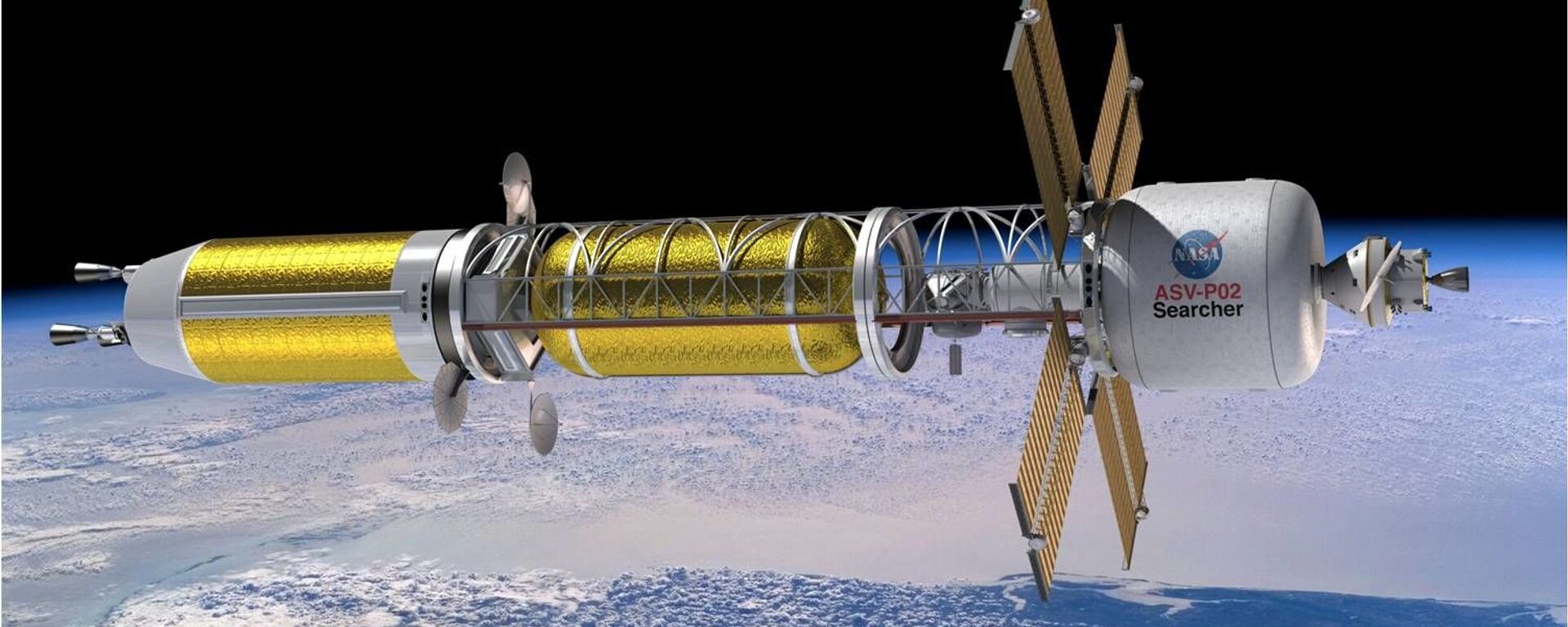https://sputnikglobe.com/20220605/how-astronauts-could-cope-with-hardships-of-space-missions-far-away-from-earth-1096033498.html
How Astronauts Could Cope With Hardships of Space Missions Far Away From Earth
How Astronauts Could Cope With Hardships of Space Missions Far Away From Earth
Sputnik International
A study carried out last year suggests that astronauts’ ability to correctly perceive each other’s emotional expressions, necessary for effective teamwork, may... 05.06.2022, Sputnik International
2022-06-05T16:40+0000
2022-06-05T16:40+0000
2022-11-03T19:33+0000
space
astronauts
mental state
earth
https://cdn1.img.sputnikglobe.com/img/106365/35/1063653508_0:0:1921:1080_1920x0_80_0_0_929de6a9cabdd5dde8d047bd36c3d4c6.jpg
Astronauts embarking on lengthy missions in space may not only have to deal with mental and emotional challenges that arise from the conditions these people would have to endure, CNN reports.Last year, a study was conducted in order to determine whether allowing participants to experience microgravity for 30 minutes a day could offset certain negative effects of simulated weightlessness they had to endure during the course of the experiment.While the “cognitive decline” the participants initially displayed in their tests eventually “evened out”, the speed with which they recognised emotions worsened, with the participants appearing more likely to regard facial expressions “as angry, rather than happy or neutral”.The media outlet points out, however, that it was unclear whether the “impairment” exhibited by the participants was a product of simulated weightlessness or a result of the isolation they were subjected to for 60 days during the experiment.One of the potential means of helping astronauts maintain their mental wellness during extended forays into space, which is being investigated by NASA’s Human Research Program, is the use of “meaningful work” to “bring mission crews together”, as well as employing group recreational activities that could help alleviate the feeling of isolation.Alexandra Whitmire, element scientist at the Human Research Program, pointed out, however, during an interview with CNN that they need to make sure they have “individualized kind of protocols and things for the crew to do".The media outlet also notes that “guided imagery” and “virtual reality capabilities” may also help astronauts by serving as a reminder of the planet they temporarily leave behind.
https://sputnikglobe.com/20220529/pentagon-looks-to-unveil-new-nuclear-power-systems-in-space-by-2027-1095863877.html
earth
Sputnik International
feedback@sputniknews.com
+74956456601
MIA „Rossiya Segodnya“
2022
Sputnik International
feedback@sputniknews.com
+74956456601
MIA „Rossiya Segodnya“
News
en_EN
Sputnik International
feedback@sputniknews.com
+74956456601
MIA „Rossiya Segodnya“
Sputnik International
feedback@sputniknews.com
+74956456601
MIA „Rossiya Segodnya“
space, astronauts, mental state, earth
space, astronauts, mental state, earth
How Astronauts Could Cope With Hardships of Space Missions Far Away From Earth
16:40 GMT 05.06.2022 (Updated: 19:33 GMT 03.11.2022) A study carried out last year suggests that astronauts’ ability to correctly perceive each other’s emotional expressions, necessary for effective teamwork, may be impaired over time during a mission in space.
Astronauts embarking on lengthy missions in space may not only have to deal with mental and emotional challenges that arise from the conditions these people would have to endure, CNN reports.
Last year, a study was conducted in order to determine whether allowing participants to experience microgravity for 30 minutes a day could offset certain negative effects of simulated weightlessness they had to endure during the course of the experiment.
While the “cognitive decline” the participants initially displayed in their tests eventually “evened out”, the speed with which they recognised emotions worsened, with the participants appearing more likely to regard facial expressions “as angry, rather than happy or neutral”.
"The astronauts' ability to correctly ‘read’ each other's emotional expressions will be of paramount importance for effective teamwork and mission success. Our findings suggest that their ability to do this may be impaired over time", said Mathias Basner, professor at the Department of Psychiatry at the University of Pennsylvania’s Perelman School of Medicine and author of the study.
The media outlet points out, however, that it was unclear whether the “impairment” exhibited by the participants was a product of simulated weightlessness or a result of the isolation they were subjected to for 60 days during the experiment.
One of the potential means of helping astronauts maintain their mental wellness during extended forays into space, which is being investigated by NASA’s Human Research Program, is the use of “meaningful work” to “bring mission crews together”, as well as employing group recreational activities that could help alleviate the feeling of isolation.
Alexandra Whitmire, element scientist at the Human Research Program, pointed out, however, during an interview with CNN that they need to make sure they have “individualized kind of protocols and things for the crew to do".
"It's really important for us to understand those individuals that will be on that mission", she remarked.
The media outlet also notes that “guided imagery” and “virtual reality capabilities” may also help astronauts by serving as a reminder of the planet they temporarily leave behind.


